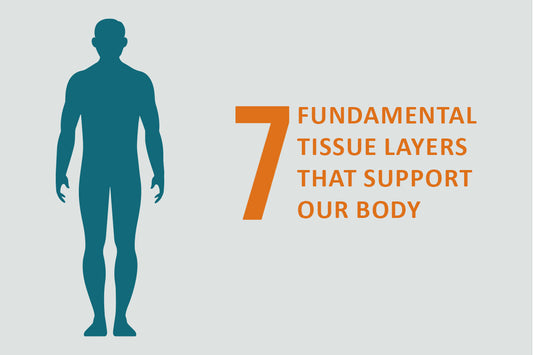Hypertension, or high blood pressure, is a common health condition that affects millions of people worldwide. It is a major risk factor for cardiovascular disease and other health complications. However, the effects of hypertension extend beyond physical health, potentially impacting emotional well-being and behavior, including the expression of anger. This blog explores whether there is a link between hypertension and increased anger, integrating terms such as cardiovascular disease, risk factors, diastolic blood pressure, systolic blood pressure, and negative emotions.
Understanding Hypertension
Hypertension occurs when the force of the blood against the artery walls is too high. This condition is often divided into two measurements: systolic and diastolic blood pressure. Systolic blood pressure, the upper number, measures the pressure in your arteries when your heart beats. Diastolic blood pressure, the lower number, measures the pressure in your arteries when your heart rests between beats. Normal systolic blood pressure is below 120, and diastolic is below 80. Readings above these levels may indicate high blood pressure or hypertension.
Hypertension and Its Link to Cardiovascular Disease
Chronic high blood pressure can lead to severe health issues, including cardiovascular disease—the leading cause of death globally. Hypertension puts additional strain on the heart and arteries, potentially leading to heart attacks, strokes, and other serious health problems. Understanding how to manage hypertension is crucial for preventing these life-threatening conditions.
Hypertension and Anger: What’s the Connection?
Research suggests that individuals with hypertension often struggle with emotional dysregulation. Emotional dysregulation is a condition where a person finds it difficult to control or manage their emotional responses. For people with high blood pressure, this often manifests as an inability to effectively handle intense emotions, making them more prone to anger.
The likely cause of this emotional dysregulation is the physical stress that hypertension places on the body. Chronic high blood pressure can strain the cardiovascular system, but its effects are not limited to the physical aspects alone; it also impacts mental health and emotional stability. The constant strain from trying to manage this chronic condition can lead to frustration and irritability, which may frequently manifest as anger.
Psychological Perspective on Hypertension and Anger
From a psychological viewpoint, hypertension may affect the body's stress response systems. In a healthy individual, stress triggers a biological response that temporarily alters physical states to cope with perceived threats. This response is typically regulated and returns to normal once the stressor is removed. However, in someone with hypertension, the stress response can become skewed. The body might exhibit a heightened sensitivity to stressors, making the individual more reactive or less capable of returning to a calm state. This dysregulated stress response makes it more challenging to manage stress and anger efficiently.
The psychological strain of living with a chronic condition like hypertension also contributes to this dynamic. The ongoing health concerns, lifestyle adjustments, and potential anxiety about one’s health can accumulate, leading to increased psychological distress, which often expresses itself through anger.
Biological Mechanisms
Biologically, several mechanisms can explain how hypertension might influence emotional regulation and lead to anger. One significant factor is the role of hormones, particularly cortisol, which is known as the "stress hormone." In hypertension, the hormonal balance of the body can be altered. Increased levels of cortisol and other stress-related hormones can occur, affecting both physical and emotional health.
Cortisol, for example, is essential for managing stress and maintaining homeostasis. However, elevated or prolonged cortisol levels can lead to numerous problems, including increased blood pressure and impaired cognitive functions, such as decision-making and emotional control. This hormonal imbalance can make an individual more susceptible to anger by reducing their ability to regulate emotions effectively.
Additionally, hypertension may affect brain function directly. High blood pressure can lead to changes in the blood flow to the brain, potentially impairing areas that are crucial for emotional regulation. This can alter how emotions are processed and expressed, leading to increased instances of anger due to the brain's decreased ability to moderate these feelings effectively.
Risk Factors for Hypertension and Anger
Several risk factors can increase the likelihood of both hypertension and anger, such as genetic predisposition, lifestyle choices, and environmental stressors. Poor diet, lack of exercise, excessive alcohol consumption, and smoking are known to contribute to high blood pressure, and they can also affect emotional health and lead to more frequent or intense episodes of anger.
Managing Hypertension and Reducing Anger
Managing hypertension involves lifestyle changes, medication, and regular monitoring of blood pressure. Similarly, handling anger related to hypertension includes stress management techniques, counseling, and sometimes medication. Activities like regular exercise, meditation, and relaxation techniques can help manage both high blood pressure and anger.
Conclusion
While more research is needed to fully understand the complex relationship between hypertension and anger, it is clear that high blood pressure can influence emotional states. By managing hypertension effectively through medical treatment and lifestyle adjustments, individuals can also potentially reduce feelings of anger and improve their overall emotional health.
By addressing both hypertension and its emotional consequences, individuals can lead healthier and more balanced lives, minimizing the impact of this condition on their physical and emotional well-being.






